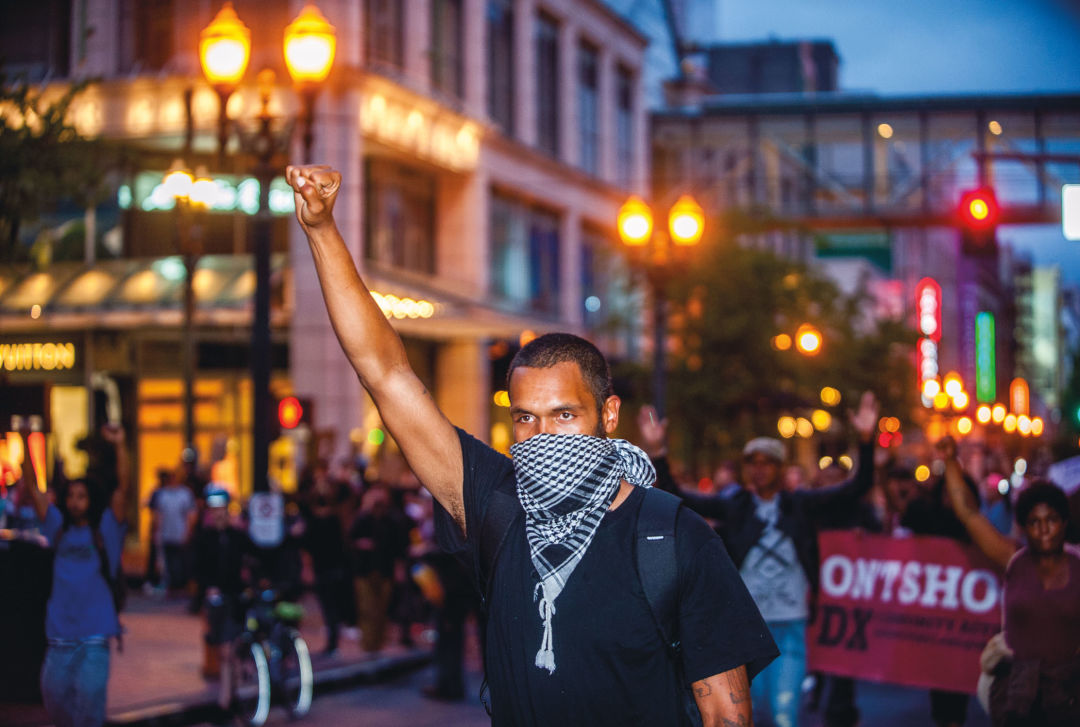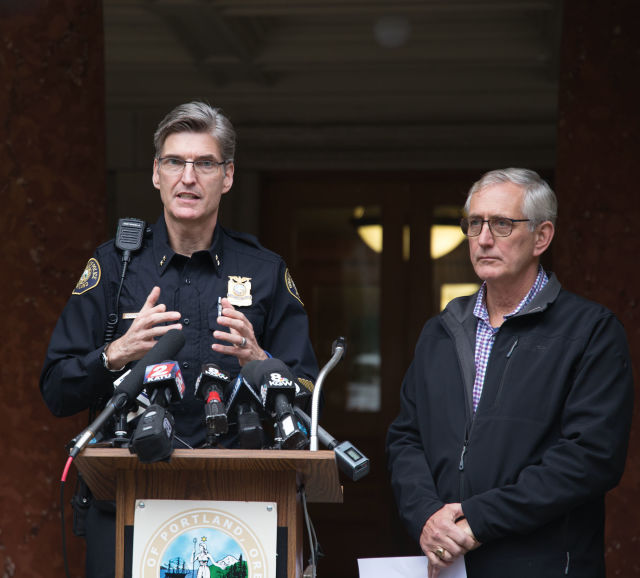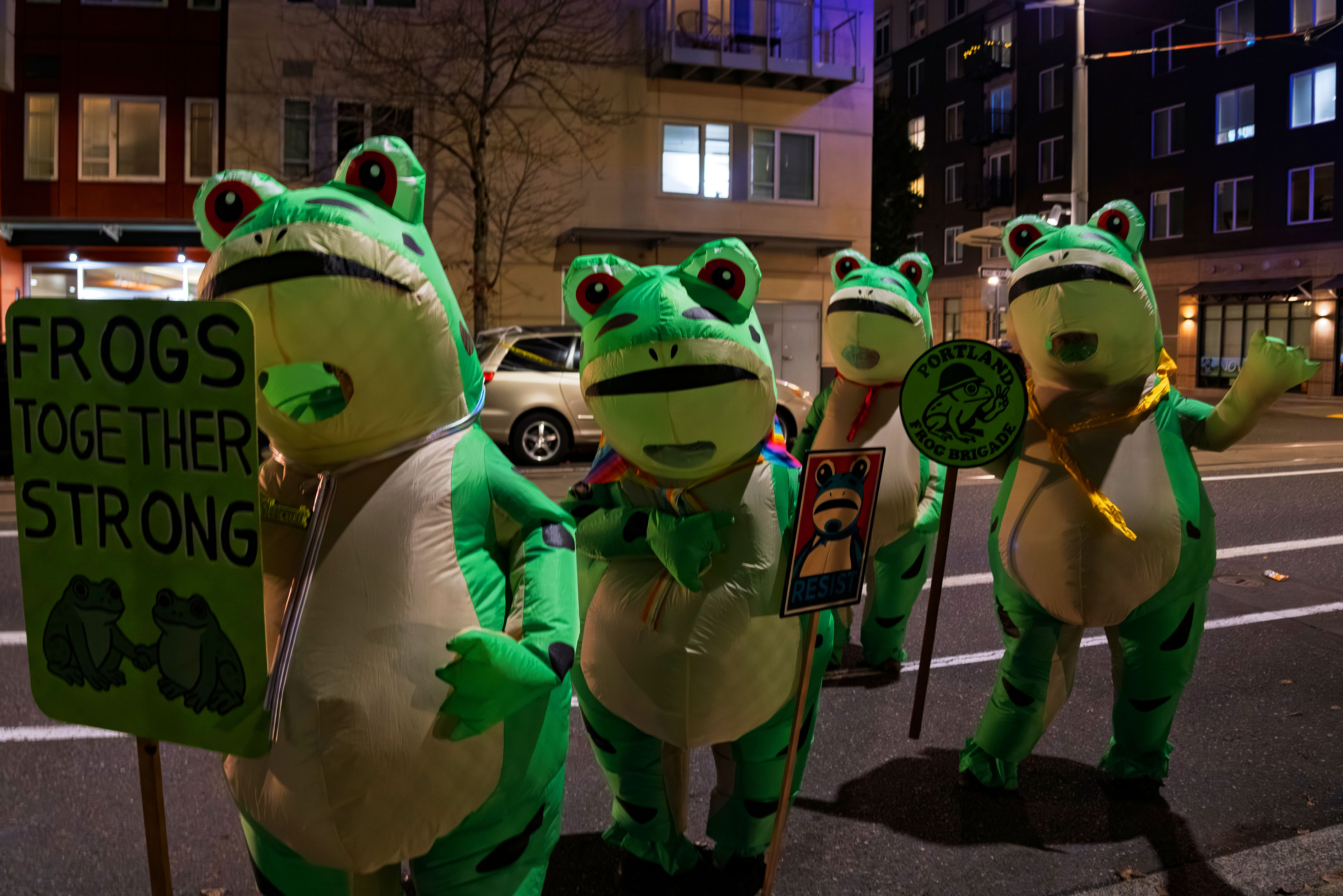What You Need to Know about Portland’s New Police Contract

A Don’t Shoot PDX protester in downtown Portland in July 2016.
In October, the city council ratified a new contract with the Portland Police Association, the union representing the city’s police officers. At that time, chaotic protests swirled around city hall, focused on both police practices and how the negotiations and vote occurred. The contract went into effect November 11—just in time for more protests, this time in the wake of the election. What was on the table?
The Big Issue
The contract’s main goal was to implement policies aimed at filling approximately 80 current vacancies. “One of the priorities for the chief right now is recruiting and retention of police officers,” says Sgt. Pete Simpson, the bureau’s spokesman. “So, one of the hopes was that it would help retain employees who were retiring at a very rapid rate, and would raise the starting wages to recruit qualified applicants.” The starting salary for a new officer rose from $49,837 to $60,840. Pay overall will rise 9 percent over the contract’s three-year duration—correspondingly boosting pension costs.

Police Chief Mike Marshman and Mayor Charlie Hales urging calm after the 2016 presidential election.
The Body-Camera Controversy
But recruitment wasn’t what brought demonstrators to the streets. Activists pushed the city to stipulate new rules on the use of incident footage captured by officers’ body cameras—a national flashpoint in a year marked by highly publicized police shootings. Teressa Raiford, founder of the activist group Don’t Shoot Portland, says: “If we’re looking for body cameras to promote transparency and accountability, then people need to have access to them immediately, and it shouldn’t be up to the union or the PPD to give you that access. It’s not fair.” In the end, the contract made no explicit changes to the body-camera policy.
The 48-Hour Rule
“One of the concessions that the union made was to eliminate what was commonly called the 48-hour rule,” Simpson explains—a long-standing, controversial policy that frequently gave officers two days before responding to internal investigations.
The Outcome
“What we ended up with was a contract that essentially focuses on wages, benefits, and working conditions,” Simpson says. Enduring issues over body cameras and other matters await new mayor Ted Wheeler. Meanwhile, departing mayor Charlie Hales can count the contract as a victory—though one that came at the cost of widespread anger over closed-door negotiations and a vote held in a room cordoned off from protesters.




